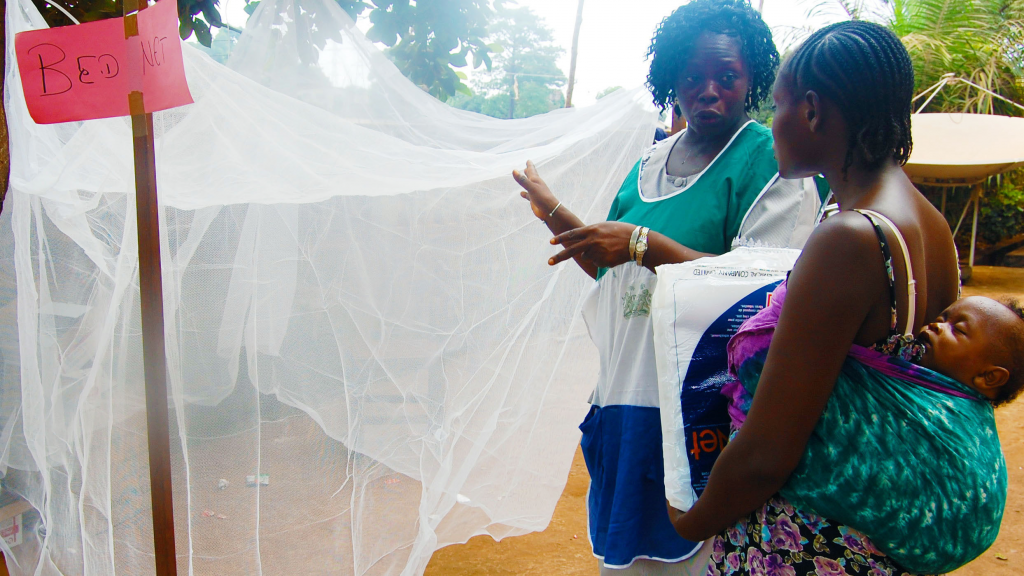29 September, by Minh Nguyen
The community health system (CHS), without a doubt, plays a critical role in designing effective interventions, implementing, and evaluating basic healthcare services. Community health system and its forces are helping reach those lacking access to health care, particularly vulnerable and marginalized group. To address the crucial needs for strengthening community health, development partners, donors and countries collaborated to design and operate community health programs. For example, in West and Central Web Africa, there are 20 out of 24 countries have community health programs[1]. Despite previous attempts to improve the quality of community health, community health programs in Africa needs more investments for a strong and resilient community health system.
Crucial Needs for Optimizing Community Health System Investments
Strengthening community systems is critical for providing accessible, and high-quality services and structures required to end the HIV, tuberculosis, and malaria epidemics; and build resilient and sustainable health systems. It also lies at the heart of the integrated, co-produced and people-centered[2] packages that are vital to achieve Universal Health Coverage and progress across all the Sustainable Development Goals. Community systems include different types of formal and informal community groups, organizations and networks, and other civil society organizations. They are an essential part of a country’s overall system for health – combining with and complementing the work of other stakeholders and sectors, such as the government and private sector. They are critical for both prevention and treatment services, especially where communities are largely rural, and the formal health system is poorly staffed with inadequate infrastructure.
In some developing countries, when properly implemented, CHS strengthen primary health care systems and address important challenges – including geographical, social, gender and financial barriers to accessing services. Indeed, unlike formal health facilities, which are often far from where people live or work, community health workers take services directly to individuals and communities, at a convenient time and place. The access-enhancing benefits of community health worker programmes are especially pronounced for rural communities and vulnerable groups.
Community systems strengthening is increasingly recognized in international commitments and normative guidelines. However, in many African countries, interventions to strengthen community systems remain insufficiently acknowledged, prioritized, or integrated in national plans and budgets (for either specific diseases or health as a whole). Most countries do not ensure national coverage of CHWs that provide a comprehensive package of services, and most are not remunerated regularly² according to a costed and funded national strategy.
Some of the main challenges include (1) unpaid community health workers; (2) under-utilized and poorly integrated in health systems; (3) lack of supervision and reporting mechanisms for community health workers; (4) insufficient mechanisms to ensure referrals between community services and the primary health care system. Likewise, the poor capacity building of community-led Civil Society Organizations also restrain active participation in service delivery, and to respond to social and structural drivers impacting people’s ability to access services. Figure 1 describes the factors that prevented road and rapid uptake of reforms identified by the African Union Commission in 2017[3].
Figure 1. Factors that prevented broad and rapid uptake of reforms (African Union Commission, 2017)
GaneshAID’s Efforts to Address the Challenges and Barriers
GaneshAID is dedicated to assisting countries in advancing Universal Health Coverage (UHC) in the context of the SDGs. With Governments and development partners, GaneshAID designs new and optimized approaches with people and communities placed at the center of health services. Considering community engagement and empowerment as a core area of interventions, we provide technical support to involve people and communities in the design, planning and delivery of health and immunization services.
Figure 2. Key innovations to address CHS bottlenecks
As a GAVI extended partner, GaneshAID supports EPI in Benin and Senegal, with the foundation of powerful community empowerment models which include trained frontline health workers, community communication and collective action, ownership, and accountability of service providers, officials, and empowering Community Based Organizations. Additionally, as a member of Health Partnership Group (HPG), organized by Vietnamese Ministry of Health, we support several community health projects. We intensify engagement of all national stakeholders to initiate and or scale up innovations to address CHS and response bottleneck (figure 2). Some of our works include:
- National Agency of Primary Health Care/EPI Benin and Prevention Directorate/MoH in Senegal– Learning and performance coaching of frontline health workers including community health workers – Coach2PEV (2018-2022)
- National Agency of Primary Health Care/EPI Benin EPI Benin – Rapid and Social Learning mobile application for vaccinators assigned to the 115 Covid-19 Immunization centers, including CHW – (VacciForm, 2019-2022)
- National Agency of Primary Health Care/EPI Benin EPI Benin and Senegal – Equity strategy base on CHS interventions to early detect zero and under-vaccinated population, partnering with formal health workers, participating in mOPV2/nOPV2 campaigns.
- Evidence based recommendations on building capacity of Community health workers in Vietnam, improving the data reporting system for community system and response, enhancing recognition and the legal framework of CHW in the MoH and with a secured monthly salary.
- GaneshAID Digital marketing campaign for routine immunization and COVID-19 vaccines uptake: GaneshAID works with communities, Ministries of Health, NGO and development partners to overcome hesitancy and resistance barriers through carefully targeted digital communication campaigns.
What are your thoughts on community health and its interventions? We are here to learn more about your initiatives and would love to seek for a close collaboration to optimize the interventions on community health systems in Africa.


